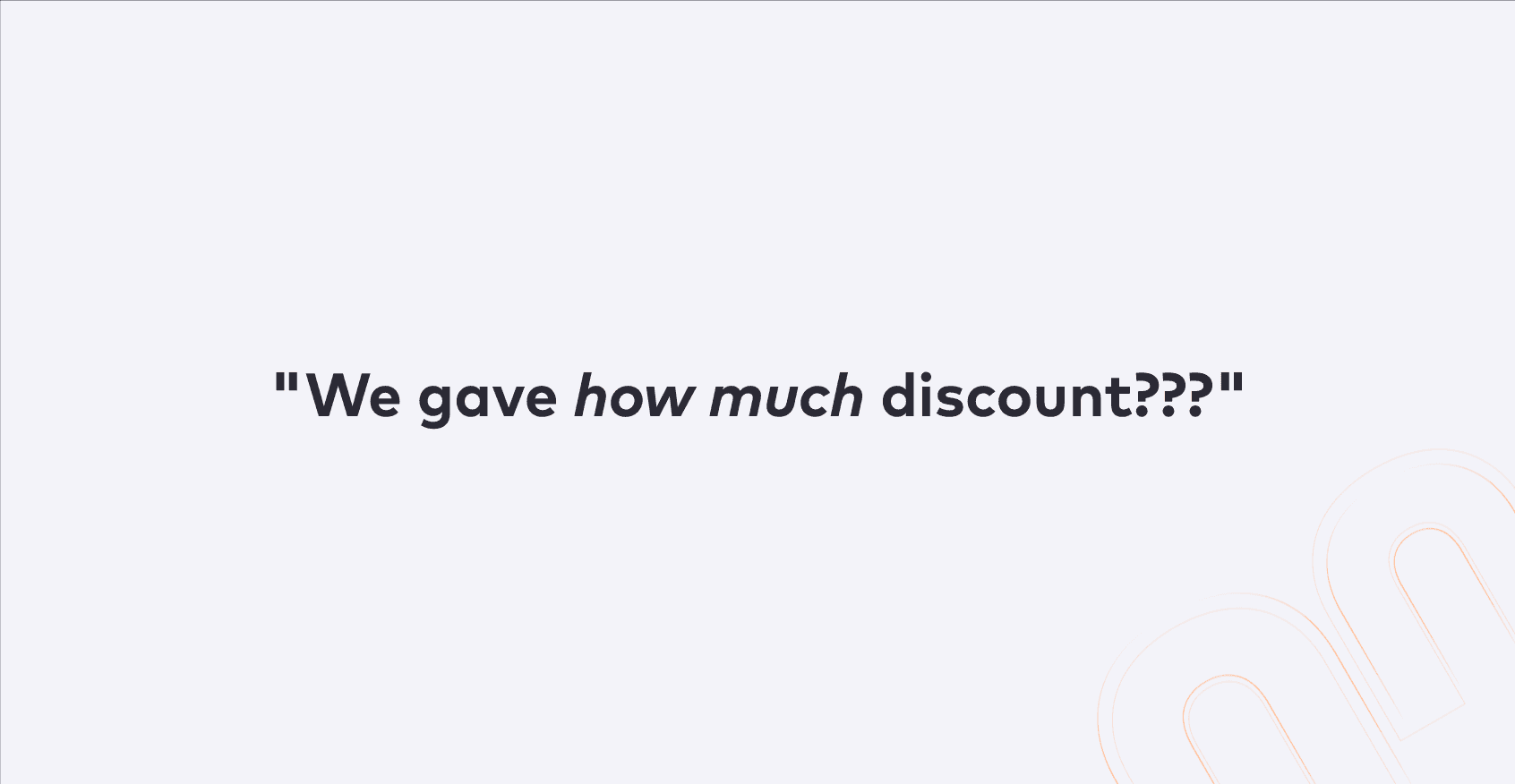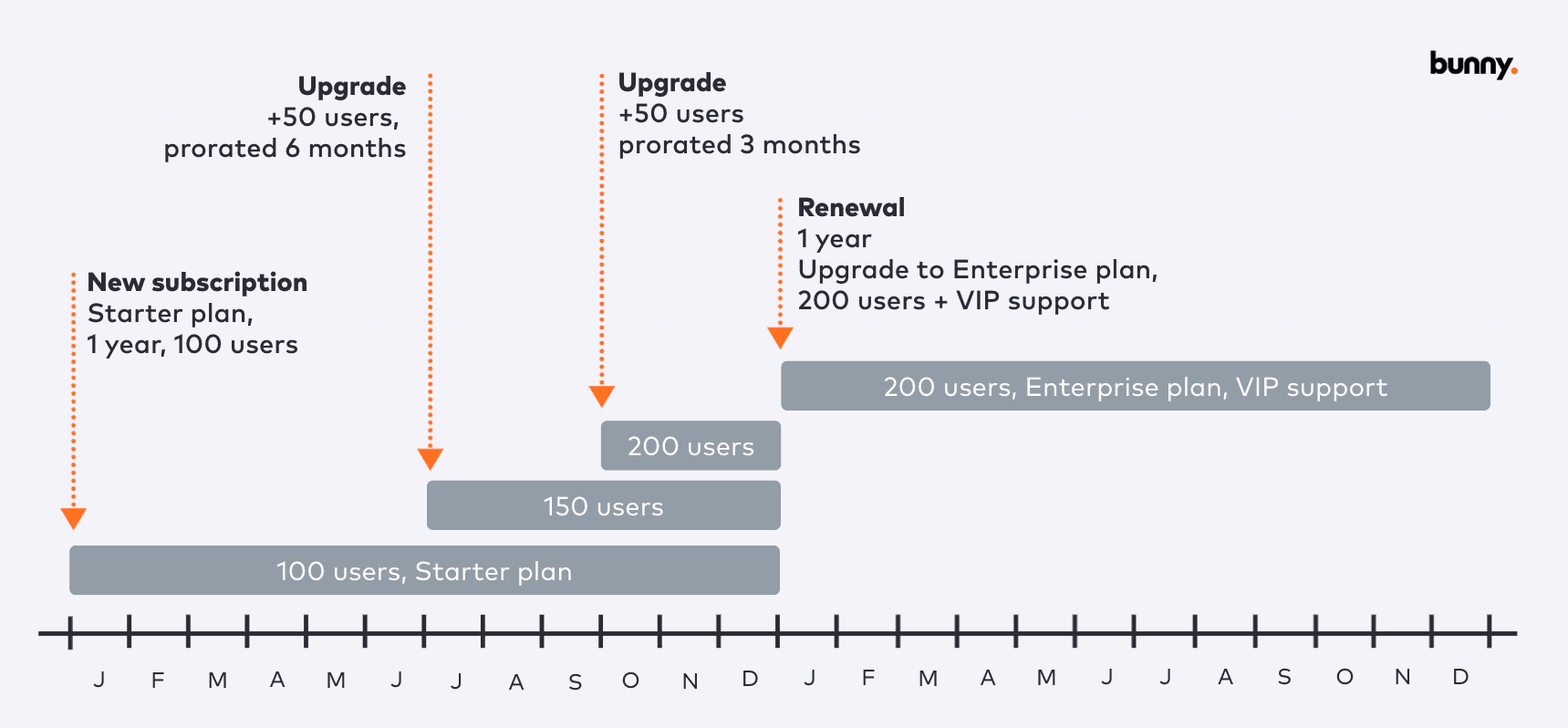
Unlocking growth potential with ramp deals in B2B SaaS

In the fast-paced world of B2B SaaS, coming up with flexible pricing strategies that can adapt to different customer needs is crucial. One smart approach that's gaining popularity is the use of ramp deals. Designed to cater to fast-growing customers with ambitious growth projections, ramp deals offer a clever solution to the traditional volume discount model. This post will delve into what ramp deals are, how they work, the challenges associated with them, and the importance of having robust tools to manage them effectively.
Understanding ramp deals
Ramp deals are a type of volume discount arrangement based on projected future growth. Unlike standard volume discounts, which require customers to purchase large quantities upfront to receive a discount, ramp deals provide a discount that increases over time as the customer's needs grow. This approach allows customers to benefit from lower prices without committing to a larger volume than they currently need.
How ramp deals work
Ramp deals are structured with planned quantity increases, often aligned with the customer's growth projections. For example, a company expecting significant user base expansion over the next few months can negotiate a ramp deal that scales their purchasing commitments accordingly. Here's a simplified example:
1. Month 1-3: The customer commits to purchasing licenses for 100 users.
2. Month 4-6: The commitment increases to 200 users.
3. Month 7-12: The commitment rises to 400 users.
At each stage, the customer receives a discount that reflects their increased commitment. This structure not only provides the customer with a lower cost per user but also ensures that they do not overcommit by purchasing more licenses than needed upfront.
The benefits of ramp deals
For Customers:
Cost Efficiency: Customers can start with a smaller number of licenses and gradually increase their commitment as their user base grows. This reduces initial expenditure and aligns costs with actual growth.
Flexibility: Ramp deals offer the flexibility to scale usage and costs in tandem with business growth, making it easier to manage budgets and financial planning.
Reduced Risk: By not having to purchase large volumes upfront, customers mitigate the risk of overcommitting to licenses they may not immediately use.
For Sellers:
Guaranteed Sales: Sellers secure a commitment to increasing future purchases, ensuring a steady revenue stream.
Customer Retention: Ramp deals create a long-term relationship with the customer, increasing the likelihood of retention and reducing churn.
Competitive Advantage: Offering ramp deals can differentiate a company from competitors by demonstrating an understanding of and willingness to support customer growth.
Challenges of quoting ramp deals
While ramp deals offer numerous benefits, quoting them can be complex. Sales teams often face difficulties in accurately projecting a customer's growth and aligning discounts accordingly. Without specialized software, many companies resort to using spreadsheets to manage ramp deal quotations. This approach can lead to several issues:
Professionalism in Presentation: Presenting a quote through a spreadsheet might signal to prospects a lack of experience or maturity with ramp deals. A professional, well-structured quote demonstrates competence and reliability, enhancing the customer’s trust and confidence.
Consistency in Proposals: When sales representatives create their own versions of ramp deal quotes, inconsistencies can arise. This lack of standardization not only creates confusion but also hinders the ability to maintain a central repository of quotes that is visible and accessible to the entire team.
Approval Workflows: Ramp deals often involve greater discounts than normal, necessitating higher-level approvals. Without built-in approval workflows, it can be challenging to ensure that all necessary stakeholders, such as the CFO, review and approve these deals before they are shared with customers.
Implementation challenges and the role of billing platforms
Implementing a ramped subscription from the initial quote can also present challenges. Manually adjusting subscription terms to reflect each ramp stage is fraught with risks:
Missed Ramps: Failing to update the subscription correctly can result in missed ramps, leading to billing errors and customer dissatisfaction.
Human Error: Manual changes increase the risk of mistakes, such as incorrect pricing or quantity adjustments, which can have significant financial implications.
Complex Coordination: Coordinating changes across different departments (sales, finance, customer success) can be cumbersome and prone to miscommunication.
To mitigate these risks, having a subscription billing platform that can automate the ramp process is crucial. An effective billing platform should:
Automate Updates: Automatically adjust subscription terms according to the ramp schedule, reducing the risk of human error.
Ensure Accuracy: Provide accurate and consistent pricing updates, ensuring customers are billed correctly at each stage.
Simplify Coordination: Streamline communication and data sharing across departments, ensuring everyone is on the same page.
Conclusion
Ramp deals represent a forward-thinking approach in the B2B SaaS landscape, offering a win-win scenario for both buyers and sellers. By aligning discounts with projected growth, these deals provide cost efficiency, flexibility, and reduced risk for customers while guaranteeing future sales and fostering long-term relationships for sellers. However, the complexity of quoting and implementing ramp deals necessitates robust tools and platforms to manage them effectively. As the SaaS market continues to evolve, leveraging advanced billing platforms to automate and streamline ramp deals will be key to driving growth and innovation in the industry.

